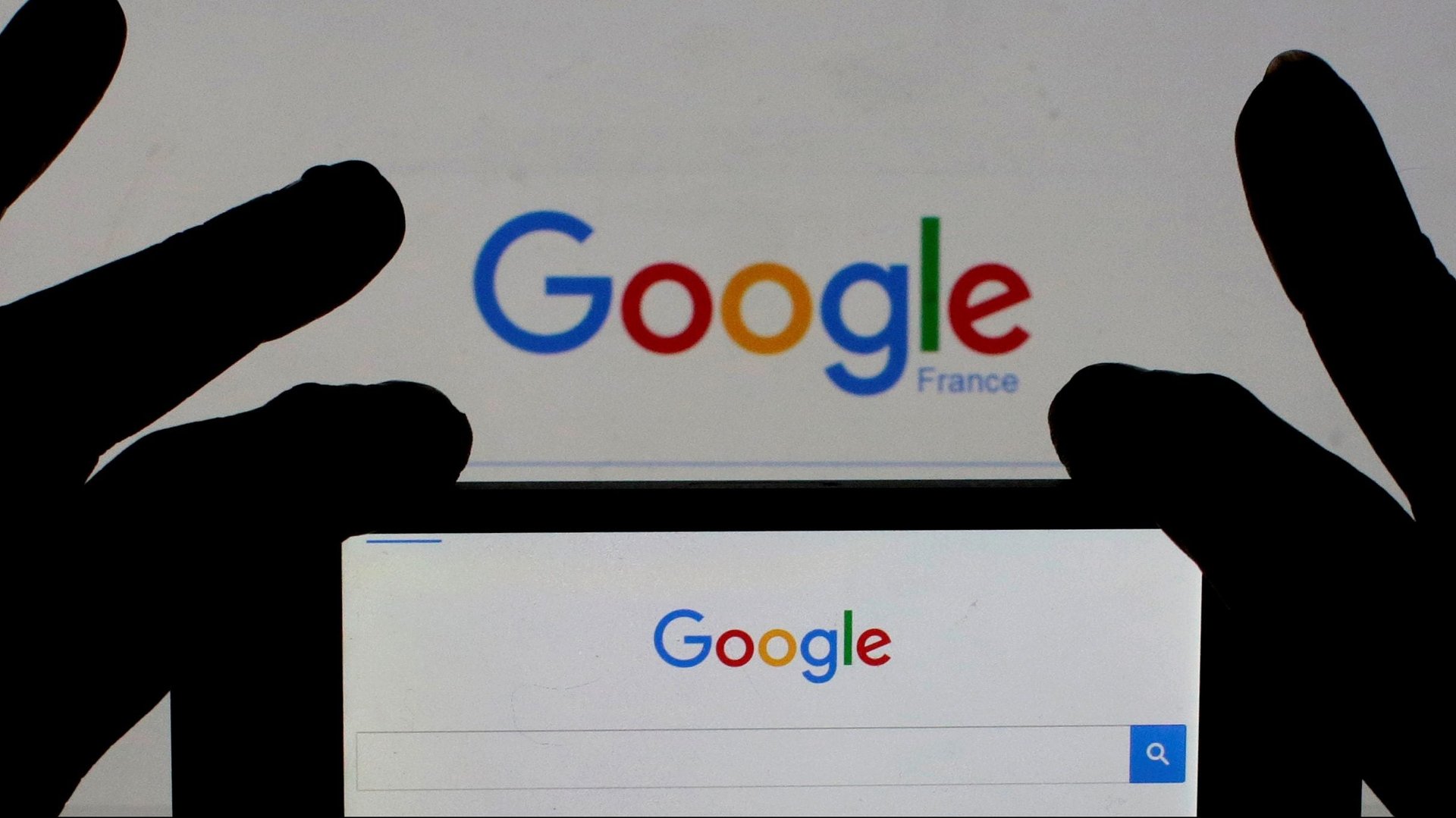The acquisitions that made Google a search monopoly
In a lawsuit filed on Tuesday, Oct. 20, the US Justice Department and 11 state attorneys general accused Google of building a search and advertising monopoly and using its market power to stifle competition.


In a lawsuit filed on Tuesday, Oct. 20, the US Justice Department and 11 state attorneys general accused Google of building a search and advertising monopoly and using its market power to stifle competition.
One measure of a company’s mounting monopoly power is the trail of mergers and acquisitions it leaves behind. Google, no surprise, has made hundreds of acquisitions since its 1998 founding, many of which have helped it carve out 90% of the US search market. Based on the arguments laid out in the Justice Department’s lawsuit, these are the deals that have made Google the dominant search provider in the US—all the way back to its 2005 takeover of Android, which did more to cement its search ascendancy than any other purchase.
Gobbling up the digital advertising market
In 2007, Google bought digital ad vendor DoubleClick for $3.1 billion. DoubleClick’s ad-serving technology and its connections with thousands of digital publishers fit neatly with Google’s search algorithms and massive roster of marketing clients. At the time, Google was 10 times smaller and competing with Yahoo! and Microsoft—but the deal allowed it to monetize search much more effectively than the competition. Google has since bought up a slew of rival ad vendors, including AdMob, Invite Media, Admeld, Applied Semantics, and Sprinks.
A former member of the US Federal Trade Commission who voted to approve the deal told the New York Times, “If I knew in 2007 what I know now, I would have voted to challenge the DoubleClick acquisition.”
Monopolizing travel deals
In 2010, Google paid $700 million for ITA Software, which licensed a tool for finding flight deals to travel search engines like Hotwire and Orbitz. Before the purchase, Google didn’t have a travel product; afterward, it owned the ITA search engine its rivals relied on, and it developed Google Flights, which keeps searches for travel deals on its own platform.
🎧 For more intel on Google tools, listen to the Quartz Obsession podcast episode on Google docs. Or subscribe via: Apple Podcasts | Spotify | Google | Stitcher.
By expanding into niche search functions like travel deals, Google has built itself into a one-stop shop that’s hard for other companies to compete against. In their complaint, US prosecutors argued that narrow search engines like Amazon, Expedia, or Yelp aren’t a real alternative to Google’s all-encompassing approach. “There are no reasonable substitutes for general search services, and a general search service monopolist would be able to maintain quality below the level that would prevail in a competitive market,” they wrote.
Scooping up user data
By shelling out $1.1 billion for Waze in 2013, Google neutralized an ascendant rival to its Maps product and gained access to software that could make its offering better. But the real prize was a new trove of users’ location data, which allowed the company to hone its search results and better target ads to them. As an increasing share of mobile devices came preloaded with Google Maps, the Waze acquisition made Google’s services even more omnipresent and inescapable.
A year later, Google’s acquisition of Nest gave the company another fount of user data to fine-tune its search and advertising results. It also ensured that Google would remain relevant as more searches get routed through voice assistants. Amazon’s Alexa voice assistant, which fields questions from roughly 70% of US smart speaker owners, exclusively uses Microsoft’s rival search engine Bing.
One operating system to rule them all
One acquisition monopolized the US prosecutors’ attention (and 22 of the 64 pages in their complaint): Google’s purchase of Android in 2005 for $50 million. The deal that bought Google its open source operating system is, more than any other, responsible for the tech giant’s continued dominance in the search and digital advertising markets.
Mobile devices have been the fastest growing source of global search traffic, now accounting for about 60% of all searches, and Android runs on seven out of every 10 mobile devices on Earth. As the suit details, that saturation has allowed Google to cut deals with smartphone makers and cell carriers to establish itself as the default search engine on most of the world’s devices.
Key provisions in Android licensing deals require manufacturers to preload Google apps onto their devices and make Google the default search engine. Google is even the default search engine on all Apple devices, thanks to a multibillion-dollar deal with Apple that accounts for 15-20% of the phonemaker’s revenue. In many cases, it’s confusing and cumbersome for consumers to figure out how to switch to a different default search engine—and most of the time, they don’t.
To seal the deal, Google throws in generous revenue sharing agreements to split the proceeds of digital advertising and Google Play Store sales. “The combined result of Google’s preinstallation and revenue sharing agreements is to lock up all the main pathways through which consumers access search on Android devices, thus foreclosing rivals and protecting Google’s monopoly positions,” the prosecutors argued.
That puts Google in a powerful position to maintain its grip on search, especially as the share of searches that occur on mobile devices continues to grow. And 15 years later, as Google comes under scrutiny for its exclusionary and anticompetitive tactics, its OS may just determine how much courts force the company to change its corporate strategy.